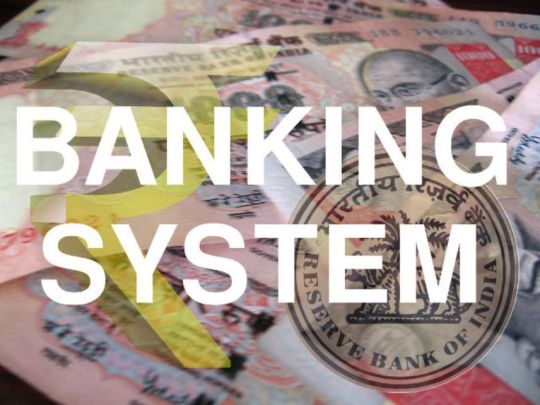#esg data management
Explore tagged Tumblr posts
Text
Data-Driven ESG Compliance: Challenges, Opportunities, and Best Practices

In the wake of a recent Supreme Court decision on affirmative action, concerns arose about potential challenges to environmental, social, and governance (ESG) strategies. However, ESG isn’t just political; it’s fundamentally good for business. Research shows a positive correlation between ESG performance and financial value creation.
At Hitachi America, Ltd. R&D, we’re actively co-creating sustainable digital solutions, committed to decarbonizing our operations and achieving global carbon neutrality in our value chain by 2050.
Despite the positive trajectory, challenges persist. Accurate ESG data is crucial, yet its availability and quality often hinder sustainable investment adoption. Regulatory concerns also loom, with worries that ESG regulations might limit business options. Additionally, smaller and minority-owned firms, while willing, struggle to incorporate ESG due to financial constraints.
To navigate these challenges, a holistic data-driven approach to ESG is essential.
Creating comprehensive audit trails around data ensures measurable ESG decisions throughout supply chains.
Standardized, globally coordinated ESG disclosure standards are vital, helping investors and stakeholders make informed decisions.
Companies must integrate ESG directly into their operations, making it a part of their core strategy.

Hitachi’s Take on ESG and Sustainability
Hitachi is actively working to facilitate the adoption of ESG practices, believing in the transformative power of sustainability. ESG-focused investments are on the rise, indicating a shifting paradigm in investment strategies. In this dynamic environment, actionable ESG practices will be instrumental, in guiding organizations toward a more sustainable future for all.
Learn how Hitachi is working to help companies make it easier to adopt and integrate ESG practices into their businesses. https://social-innovation.hitachi/en-us/think-ahead/manufacturing/actionable-esg-compliance-for-businesses/
#sustainability#decarbonization#esg#esg reporting#esg data analytics#esg data management#esg investing#esg financing#esg strategy#esg compliance
0 notes
Text
Building Trust through Transparent ESG Data Management
ESG (Environmental, Social, and Governance) considerations have become a significant factor in investment decision-making. As investors increasingly prioritize sustainability and responsible practices, ESG data management plays a crucial role in aligning portfolios with these values. In this article, we will explore the importance of ESG data management, its role in ESG investing, and how it contributes to portfolio alignment.
Understanding ESG Data Management:
ESG data management involves the collection, analysis, and utilization of data related to a company's environmental impact, social initiatives, and corporate governance practices. Effective management of ESG data enables investors to make informed decisions by evaluating a company's sustainability performance and societal impact.
The Role of ESG Data Management in ESG Investing:
a) Identifying Sustainable Investments: ESG data management allows investors to identify companies that align with their sustainability objectives. By analyzing ESG data, investors can assess a company's environmental footprint, social responsibility, and governance practices. This information helps identify potential sustainable investments.
b) Mitigating Risk: ESG data management enables investors to evaluate and manage risks associated with ESG factors. By analyzing a company's performance on environmental, social, and governance dimensions, investors can identify potential risks and take necessary precautions. This proactive approach mitigates risk and enhances long-term portfolio resilience.
c) Capitalizing on Opportunities: Effective ESG data management helps investors identify emerging opportunities in sustainable sectors. By analyzing industry-specific ESG trends, investors can allocate capital to companies and sectors poised for growth in the transition to a more sustainable economy. This forward-looking approach can enhance investment returns.
ESG Data Management and Portfolio Alignment:
a) Aligning with Investor Values: ESG data management enables investors to align their portfolios with their values. By integrating ESG factors into the investment process, investors can ensure that their portfolios reflect their sustainability goals. This alignment promotes consistency between investment strategies and personal beliefs.
b) Enhancing Long-Term Performance: Effective ESG data management contributes to portfolio alignment by focusing on long-term performance. Companies with strong ESG profiles are often better positioned to navigate environmental and social challenges, leading to sustainable growth and shareholder value creation. By aligning portfolios with such companies, investors can enhance long-term performance.
c) Measuring Impact: ESG data management allows investors to measure the impact of their investments. Through rigorous data analysis, investors can evaluate the positive environmental and social outcomes resulting from their portfolio allocations. This measurement of impact helps investors track progress and make informed decisions to further align their portfolios.
Conclusion:
ESG data management plays a critical role in ESG portfolio alignment. By effectively managing ESG data, investors can identify sustainable investments, mitigate risks, and capitalize on emerging opportunities. Furthermore, aligning portfolios with investor values and focusing on long-term performance enhances the overall impact and sustainability of investment strategies. Embracing ESG data management as a key element in portfolio decision-making enables investors to unlock value while contributing to a more sustainable future.
0 notes
Text
ESG Consultancy In Dubai | ESG Investment Management
AJMS Global is a boutique consulting firm specializing in providing niche consulting proposition to its clients in the area of Tax, Risk, Compliance, IFRS advisory and Digital Transformation Advisory.
#esg consultancy in dubai#esginvestmentmanagement#esg analyst#tax managed services#esg consulting firms#esg data providers#data management strategy
2 notes
·
View notes
Text
The Impact of ESG Data Software on Investment Decisions
ESG Data Software
In recent years, Environmental, Social, and Governance (ESG) factors have become crucial in shaping investment strategies. Investors are increasingly considering the sustainability and ethical practices of companies before making financial commitments. ESG data software, including tools such as ESG analytics and reporting solutions, has emerged as a game-changer, enabling investors to make informed decisions. This article delves into the profound impact of ESG software tools on investment decisions, the functionality of various ESG reporting tools, and the significance of corporate sustainability software.

The Role of ESG Data in Modern Investments
The integration of ESG factors into investment strategies is no longer optional. As stakeholders demand greater transparency, companies must demonstrate their commitment to environmental sustainability, social responsibility, and robust governance. ESG data software has become indispensable in this process, empowering investors to:
Assess the sustainability practices of companies.
Mitigate risks associated with ESG non-compliance.
Identify opportunities aligned with sustainability goals.
Why Investors Rely on ESG Software Tools
Investors use ESG software tools to streamline their analysis of corporate sustainability performance. These tools leverage comprehensive data management, ESG analytics, and sustainability reporting capabilities to provide actionable insights. By utilizing an advanced ESG Software Tool, investors can evaluate company performance against industry standards, regulatory requirements, and global benchmarks.
ESG Data Software: A Strategic Asset for Investors
Enhancing Decision-Making with ESG Analytics
ESG analytics transforms raw data into valuable insights. Advanced ESG monitoring tools analyze complex datasets to identify trends, assess risks, and uncover opportunities. For instance, companies employing ESG reporting tools can provide transparent data that aligns with investor expectations. These tools ensure consistency in reporting, making it easier for investors to compare companies across industries.
Benefits of ESG Data Management
Efficient ESG data management is critical for both companies and investors. Corporate sustainability software consolidates and organizes data from multiple sources, enabling accurate reporting and analysis. For investors, well-managed data facilitates:
Risk identification: Detecting potential environmental or governance issues early.
Performance tracking: Monitoring progress on sustainability goals.
Strategic alignment: Ensuring investments align with ESG values.
By leveraging robust sustainability software, investors can optimize their portfolio strategies while fostering a commitment to ethical investing.
Key Features of ESG Reporting Tools
Streamlined ESG Reporting
ESG reporting tools simplify the reporting process by automating data collection and analysis. These tools enable companies to comply with stringent regulatory requirements while meeting investor demands for transparency. Features like automated report generation, real-time data monitoring, and customizable dashboards make ESG reporting seamless.
ESG Compliance Software for Risk Mitigation
Regulatory compliance is a critical component of ESG strategies. ESG compliance software helps organizations adhere to local and international standards, minimizing the risk of legal penalties. This compliance-focused approach also reassures investors, ensuring that their capital is allocated to responsible businesses.
Monitoring Progress with ESG Monitoring Tools
Effective ESG monitoring tools allow continuous tracking of sustainability metrics. These tools enable companies to:
Identify areas for improvement.
Address gaps in sustainability practices.
Showcase progress to stakeholders.
For investors, access to reliable monitoring tools enhances their confidence in the companies they invest in.
The Growing Demand for Sustainability Reporting
Sustainability reporting has become a cornerstone of modern business practices. Investors rely heavily on accurate and comprehensive reports to make informed decisions. Corporate sustainability software plays a pivotal role in generating these reports, ensuring consistency and reliability. By using ESG report generation tools, companies can present their data in an investor-friendly format, fostering trust and accountability.
Environmental Software: Addressing Climate Concerns
Environmental software focuses on key metrics such as carbon emissions, energy consumption, and resource utilization. These tools help companies minimize their environmental footprint, which is increasingly important for investors prioritizing green investments. Such software also ensures alignment with global initiatives like the Paris Agreement, making it an essential component of any ESG strategy.
How ESG Software Shapes the Investment Landscape
Identifying Sustainable Opportunities
ESG data software provides investors with the insights needed to identify sustainable opportunities. By analyzing industry trends and company performance, ESG analytics can pinpoint organizations leading in innovation and sustainability. This capability allows investors to allocate resources to companies that align with their ethical and financial goals.
Mitigating Long-Term Risks
Investments carry inherent risks, but ESG software tools offer a proactive approach to risk mitigation. By evaluating companies’ adherence to ESG standards, investors can avoid those with potential environmental liabilities, governance failures, or social controversies. This strategic foresight enhances portfolio stability and long-term returns.
Enhancing Transparency and Accountability
Transparency is paramount in the modern investment ecosystem. With the help of ESG compliance software, companies can disclose relevant data, ensuring accountability to investors. This openness fosters trust, which is crucial for maintaining investor confidence in today’s competitive market.
The Future of ESG Data Software
The demand for ESG data software is expected to grow exponentially. Innovations in AI, machine learning, and big data analytics will enhance the capabilities of ESG software tools, making them even more indispensable for investors. Additionally, as regulatory frameworks evolve, ESG compliance software will play a critical role in ensuring companies remain aligned with global standards.
The Role of Technology in ESG Evolution
Technological advancements are driving the ESG transformation. Tools like corporate sustainability software are becoming smarter, enabling more accurate predictions and deeper insights. These innovations not only benefit investors but also empower companies to achieve their sustainability objectives.
Collaboration Between Stakeholders
The synergy between investors, companies, and software providers is vital for the future of ESG. By leveraging cutting-edge solutions, stakeholders can collectively address global challenges, ensuring a sustainable future for generations to come.
FAQs
What is ESG data software?
ESG data software refers to digital tools designed to collect, manage, analyze, and report on environmental, social, and governance data. These tools help companies comply with regulations and enable investors to make informed decisions.
How does ESG software benefit investors?
ESG software provides investors with insights into a company’s sustainability practices, risk factors, and performance metrics. This information enables investors to align their portfolios with ethical and financial goals.
Why is sustainability reporting important?
Sustainability reporting demonstrates a company’s commitment to ethical practices and transparency. It helps investors understand how a company addresses environmental, social, and governance challenges.
What features should I look for in ESG reporting tools?
Key features include automated report generation, real-time data monitoring, compliance tracking, and customizable dashboards. These capabilities ensure accuracy, efficiency, and alignment with investor expectations.
How does environmental software contribute to ESG goals?
Environmental software focuses on metrics like carbon emissions and energy consumption. It helps companies reduce their environmental footprint, ensuring alignment with global sustainability initiatives and attracting eco-conscious investors.
Is ESG data software suitable for small businesses?
Yes, ESG data software can be tailored to meet the needs of businesses of all sizes. Scalable solutions enable small businesses to track their sustainability efforts and meet regulatory requirements effectively.
In conclusion, ESG data software is transforming the investment landscape by providing essential tools for evaluating sustainability practices and mitigating risks. By embracing technologies like ESG analytics and corporate sustainability software, investors can make informed decisions that align with both ethical values and financial objectives. The future of investing lies in sustainability, and ESG software tools are leading the way.
0 notes
Text
Managing the data implications of CSRD
The EU’s Corporate Sustainability Reporting Directive (CSRD) will begin coming into effect in 2025. African firms, like their international counterparts, are gearing up to comply with the CSRD’s stringent reporting requirements. One of the most critical aspects of CSRD compliance is data management. Understanding the CSRDData Management Challenges for African FirmsKey Data Management…
0 notes
Text
Compliance Training in India

Looking for top compliance training in India? The Certified Compliance and Ethics Professional Course (CEPC), offered by EthicsIndia, is designed to equip Compliance & Ethics professionals with the knowledge, skills and hands-on experience required to build a sustainable culture of compliance and ethics within their organizations.
This CEPC training program includes essential topics such as: 1. Introduction to Compliance and Ethics 2. Organizational Ethics 3. Imbibing a Compliance Culture 4. Third Party Risk Management 5. Anti-Bribery & Anti-Corruption 6. Fraud Risk Mitigation, Investigation and Management 7. Data Privacy, Cyber Security & General Data Protection Regulation (GDPR) 8. Environmental, Social and Governance Practices (ESG) 9. Corporate Governance
For those seeking compliance training in India, this course offers a comprehensive solution to enhance your professional expertise and drive organizational success.
#ethicsindia#ethics and compliance#ethicsindia cepc course#certified ethics and compliance course#certified ethics and compliance professional course#compliance and ethics#organizational ethics#compliance culture#third party management#esg#corporate goverance#anti bribery#anti corruption#data privacy#compliance courses#ethics courses#fraud risk mitigation#ethicsindia certified compliance and ethics professional course
0 notes
Text
Zigram's ESG Data Management Software: Navigating Sustainability with Precision
Embark on a journey towards sustainable practices with Zigram's cutting-edge ESG Data Management Software. As businesses worldwide recognize the importance of Environmental, Social, and Governance (ESG) factors, Zigram steps in as a trusted ally. Our software seamlessly integrates into your operations, providing a comprehensive solution for ESG data tracking, analysis, and reporting. Zigram empowers organizations to make informed decisions, fostering a culture of responsibility and transparency in the era of sustainable business practices.
0 notes
Text
Optimize Your ESG Data Management with Zigram's Innovative Software!
Description:
Elevate your Environmental, Social, and Governance (ESG) initiatives with Zigram's state-of-the-art ESG Data Management software. Streamline data processes, enhance transparency, and ensure sustainability with Zigram. Choose us for a seamless and efficient approach to managing your ESG data.
Key Features: 🌿 Comprehensive ESG Data Management: Zigram's software offers end-to-end ESG data management, allowing you to consolidate, analyze, and report on environmental, social, and governance metrics effortlessly.
📊 Advanced Analytics: Gain valuable insights into your sustainability performance with Zigram's advanced analytics tools. Make data-driven decisions to enhance your ESG strategies and initiatives.
0 notes
Text
How Does ESG Data Management Software Improve Your Sustainability Reporting?
In recent times, ESG has become highly important in the corporate world and many companies have shifted to ESG data management software to ensure that ESG reporting is done efficiently and in desired time. However, there are still many companies and organizations that use the manual ESG reporting techniques.
Manual ESG reporting is not just outdated but it also comes with a lot of errors and is a much more time-consuming process. Using such outdated tools can cause many inaccuracies in the ESG reporting which are not acceptable and can cause risk to the company’s progress. This is why the use of ESG data management software is recommended in order to carry out ESG reporting smoothly and accurately.
In this article, we are going to have a look at the challenges faced by ESG reporting and how the use of ESG data management software can transform the ESG reporting process.
What are the challenges that you face in ESG reporting?
ESG reporting is an essential part of the corporate world, but as important as it is, the process of ESG reporting is not easy. Many companies that use ESG reporting face quite a few challenges along the process. Some of these commonly faced challenges are as follows:
1. Data quality is not up to date
No matter how qualified your ESG team is, the collection and management of high volumes of qualitative and quantitative data is not an easy task to perform. This might lead to many errors and is a high cause of why many companies are left with outdated or poor-quality data. This becomes more of a problem when the data in question is decentralized, wide-reaching or multi-dimensional.
2. Data collection and reporting mechanisms are poor
Another big challenge faced by companies in ESG reporting is the collection and reporting mechanisms used by the ESG team. When there is a high quantity of data to deal with, there is often inefficient management of the data which leads to inaccurate reporting. Managing so much data manually becomes quite overwhelming for the ESG teams, which is why it is important that the companies provide them with a good, up-to-date software to take care of the data management and reporting.
3. Complex and changing ESG landscape
The ESG landscape all over the world is a fast-changing and complex landscape. This can in itself makes the ESG reporting process quite complicated and confusing. On top of that, the ESG teams often have to answer many questionnaires regarding ESG reporting. If they do it on a manual level, it can lead to different ESG narratives on behalf of the company.
How does ESG data management software transform your reporting?
As we already discussed, ESG reporting comes with challenges and is not at all an easy process to complete. However, with a valuable ESG data management software you can make this process quite manageable and it can transform the whole ESG reporting experience for you.
The software will not only provide your business with insights into your ESG risks and opportunities, enabling you to make more informed decisions and mitigate risks, but also help demonstrate your commitment to sustainability and responsible business practices, which can lead to increased stakeholder trust and loyalty.
Following are the ways in which ESG data management software can help your businesstransform the process of ESG reporting:
1. It ensures proper data collection and analysis:
ESG data management software can help youcollect and analyze the data for your business, and also assist in transforming that raw data into insightful information.With the help of efficient data collection and management, you can make the ESG reporting process much better and quicker.
2. It helps in efficient ESG reporting:
Efficient sustainability reporting is the need of the hour. The software enables your ESG team to develop more effective methods for meeting reporting requirements and information requestsfrom stakeholders. Hence, helping them to respond more efficiently to the client’s requirement for ESG reporting, while also lowering the possibility of erroneous reporting and disclosures.
3. It gives you up-to-date compliance:
Staying up to date with ESG data management is quite important. The ESG standards keep on changing over time and having ESG data management software makes it easy for the ESG team to stay up to date with these changing standards.
In conclusion
Proper ESG reporting is becoming increasingly important for businesses nowadays as stakeholders demand greater transparency and accountability on ESG issues. The above points make it pretty clear that using ESG data management software can positively impact ESG reporting by making it more efficient. Therefore, to make ESG reporting more accurate and less time-consuming, it is recommended that every business should have updated ESG data management software for assistance.
Source: The Proche
0 notes
Text
Why is ESG Intelligence Important to Companies?

Human activities burden Earth’s biosphere, but ESG criteria can ensure that industries optimize their operations to reduce their adverse impact on ecological and socio-economic integrity. Investors have utilized the related business intelligence to screen stocks of ethical enterprises. Consumers want to avoid brands that employ child labor. This post will elaborate on why ESG intelligence has become important to companies.
What is ESG Intelligence?
ESG, or environmental, social, and governance, is an investment guidance and business performance auditing approach. It assesses how a commercial organization treats its stakeholders and consumes natural resources. At its core, you will discover statistical metrics from a sustainability perspective. So, ESG data providers gather and process data for compliance ratings and reports.
Managers, investors, and government officers can understand a company’s impact on its workers, regional community, and biosphere before engaging in stock buying or business mergers. Since attracting investors and complying with regulatory guidelines is vital for modern corporations, ESG intelligence professionals have witnessed a rise in year-on-year demand.
Simultaneously, high-net-worth individuals (HNWI) and financial institutions expect a business to work toward accomplishing the United Nations’ sustainable development goals. Given these dynamics, leaders require data-driven insights to enhance their compliance ratings.
Components of ESG Intelligence
The environmental considerations rate a firm based on waste disposal, plastic reduction, carbon emissions risks, pollution control, and biodiversity preservation. Other metrics include renewable energy adoption, green technology, and water consumption.
Likewise, the social impact assessments check whether a company has an adequate diversity, equity, and inclusion (DEI) policy. Preventing workplace toxicity and eradicating child labor practices are often integral to the social reporting head of ESG services.
Corporate governance concerns discouraging bribes and similar corruptive activities. Moreover, an organization must implement solid cybersecurity measures to mitigate corporate espionage and ransomware threats. Accounting transparency matters too.
Why is ESG Intelligence Important to Companies?
Reason 1 – Risk Management
All three pillars of ESG reports, environmental, social, and governance, enable business owners to reduce their company’s exposure to the following risks.
High greenhouse (GHG) emissions will attract regulatory penalties under pollution reduction directives. Besides, a commercial project can take longer if vital resources like water become polluted. Thankfully, the environmental pillar helps companies comply with the laws governing these situations.
A toxic and discriminatory workplace environment often harms employees’ productivity, collaboration, creativity, and leadership skill development. Therefore, inefficiencies like reporting delays or emotional exhaustion can slow a project’s progress. ESG’s social metrics will mitigate the highlighted risks resulting from human behavior and multi-generational presumptions.
Insurance fraud, money laundering, tax evasion, preferential treatment, hiding conflicts of interest, and corporate espionage are the governance risks you must address as soon as possible. These problems introduce accounting inconsistencies and data theft issues. You will also receive penalties according to your regional laws if data leaks or insider trading happens.
Reason 2 – Investor Relations (IR)
Transparent disclosures can make or break the relationship between corporate leaders and investors. With the help of ESG intelligence, it becomes easier to make qualitative and manipulation-free “financial materiality” reports. Therefore, managers can successfully execute the deal negotiations with little to no resistance.
You want to retain the present investors and attract more patrons to raise funds. These resources will help you to augment your company’s expansion and market penetration. However, nourishing mutually beneficial investor relations is easier said than done.
For example, some sustainability investors will prioritize enterprises with an ESG score of above 80. Others will refuse to engage with your brand if one of the suppliers has documented records of employing child labor. Instead of being unaware of these issues, you can identify them and mitigate the associated risks using ESG intelligence and insights.
Reason 3 – Consumer Demand
Consider the following cases.
Customers wanted plastic-free product packaging, and e-commerce platforms listened to their demand. And today’s direct home deliveries contribute to public awareness of how petroleum-derived synthetic coating materials threaten the environment.
The availability of recharging facilities and rising gas prices have made electric vehicles (EVs) more attractive to consumers. Previously, the demand for EVs had existed only in the metropolitan areas. However, the EV industry expects continuous growth as electricity reaches more semi-urban and rural regions.
Businesses and investors care about consumer demand. Remember, they cannot force consumers into buying a product or service. And a healthy competitive industry has at least three players. Therefore, customers can choose which branded items they want to consume.
Consumer demand is one of the driving factors that made ESG intelligence crucial in many industries. If nobody was searching for electric vehicles on the web or everybody had demanded plastic packaging, businesses would never switch their attitudes toward the concerns discussed above.
Conclusion
Data governance has become a popular topic due to the privacy laws in the EU, the US, Brazil, and other nations. Meanwhile, child labor is still prevalent in specific developing and underdeveloped regions. Also, the climate crisis has endangered the future of agricultural occupations.
Deforestation, illiteracy, carbon emissions, identity theft, insider trading, discrimination, on-site accidents, corruption, and gender gap threaten the well-being of future generations. The world requires immediate and coordinated actions to resolve these issues.
Therefore, ESG intelligence is important to companies, consumers, investors, and governments. Properly acquiring and analyzing it is possible if these stakeholders leverage the right tools, relevant benchmarks, and expert data partners.
2 notes
·
View notes
Text
Best 10 Business Strategies for year 2024
In 2024 and beyond, businesses will have to change with the times and adjust their approach based on new and existing market realities. The following are the best 10 business approach that will help companies to prosper in coming year
1. Embrace Sustainability
The days when sustainability was discretionary are long gone. Businesses need to incorporate environmental, social and governance (ESG) values into their business practices. In the same vein, brands can improve brand identity and appeal to environmental advocates by using renewable forms of energy or minimizing their carbon footprints.
Example: a fashion brand can rethink the materials to use organic cotton and recycled for their clothing lines. They can also run a take-back scheme, allowing customers to return old clothes for recycling (not only reducing waste but creating and supporting the circular economy).
2. Leverage AI

AI is revolutionizing business operations. Using AI-fuelled solutions means that you can automate processes, bring in positive customer experiences, and get insights. AI chatbots: AI can be utilized in the form of a conversational entity to support and perform backend operations, as well.
With a bit more specificity, say for example that an AI-powered recommendation engine recommends products to customers based on their browsing history and purchase patterns (as the use case of retail). This helps to increase the sales and improve the shopping experience.
3. Prioritize Cybersecurity
Cybersecurity is of utmost important as more and more business transitions towards digital platforms. Businesses need to part with a more substantial amount of money on advanced protective measures so that they can keep sensitive data private and continue earning consumer trust. Regular security audits and training of employees can reduce these risks.
Example: A financial services firm may implement multi-factor authentication (MFA) for all online transactions, regularly control access to Internet-facing administrative interfaces and service ports as well as the encryption protocols to secure client data from cyberattacks.
4. Optimizing Remote and Hybrid Working Models

Remote / hybrid is the new normal Remote teams force companies to implement effective motivation and management strategies. Collaboration tools and a balanced virtual culture can improve productivity and employee satisfaction.
- Illustration: a Tech company using Asana / Trello etc. for pm to keep remote teams from falling out of balance. They can also organise weekly team-building activities to keep a strong team spirit.
5. Focus on Customer Experience
Retention and growth of the sales follow-through can be tied to high quality customer experiences. Harness data analytics to deepen customer insights and personalize product offers making your marketing campaigns personal: a customer support that is responsive enough can drive a great level of returning customers.
Example – For any e-commerce business, you can take user experience feedback tools to know about how your customers are getting along and make necessary changes. Custom email campaigns and loyalty programs can also be positively associated with customer satisfaction and retention.
6. Digitalization Investment

It is only the beginning of digital transformation which we all know, is key to global competitiveness. For streamlining, companies have to adopt the use advanced technologies such as Blockchain Technology and Internet of Things (IoT) in conjunction with cloud computing.
IoT example : real-time tracking and analytics to optimize supply chain management
7. Enhance Employee Skills
Develop Your Employees: Investing in employee development is key to succeeding as a business. The training is provided for the folks of various industries and so employees can increase their skills that are needed to work in a certain company. Employee performance can be enhanced by providing training programs in future technology skills and soft skills and job satisfaction.
Example: A marketing agency can host webinars or create courses to teach people the latest digital marketing trends and tools This can help to keep employees in the know which results in boosting their skills, making your campaigns successful.
8. Diversify Supply Chains

The ongoing pandemic has exposed the weaknesses of global supply chains. …diversify its supply base and promote the manufacturing of drugs in Nigeria to eliminate total dependence on a single source. In return, this approach increases resilience and reduces exposure to the risks of supply chain interruption.
- E.g., a consumer electronics company can source components from many suppliers in various regions. In so doing, this alleviates avoidable supply chain interruptions during times of political tensions or when disasters hit.
9. Make Decisions Based on Data
A business database is an asset for businesses. By implementing data, they allow you to make decisions based on the data that your analytics tools are providing. For example, sales analysis lets you track trends and better tailor your goods to the market.
Example: A retail chain can use data analytics to find out when a customer buys, and it change their purchasing policies. This can also reduce overstock and stockouts while overall, increasing efficiency.
10. Foster Innovation

Business Growth Innovation is Key A culture of creativity and experimentation should be established in companies. Funding R&D and teaming with startups can open many doors to both solve problems creatively but also tap into new markets.
Example: A software development firm could create an innovation lab where team members are freed to work on speculative projects. Moreover, work with start-ups on new technologies and solutions.
By adopting these strategies, businesses can navigate the turbulence for 2024 and roll up market — progressive.AI with an evolving dynamic market, being ahead of trends and updated is most likely will help you thrive in the business landscape.
#ai#business#business strategy#business growth#startup#fintech#technology#tech#innovation#ai in business
2 notes
·
View notes
Text
Unveiling the Job Market: How Many Jobs Are Available in Finance Services in 2024?

In the ever-evolving landscape of finance, the job market plays a pivotal role in shaping career aspirations and industry trends. As we step into 2024, professionals and aspiring individuals are eager to uncover the opportunities awaiting them in the realm of finance services, particularly in the United States. This article sheds light on the abundance of opportunities available in the finance services.
Exploring the Finance Job Market Landscape:
Quantifying Opportunities:
How many jobs are available in finance in the USA?
Analyzing recent statistics and projections to gauge the scale of employment opportunities.
Factors influencing job availability, such as economic conditions, technological advancements, and regulatory changes.
Diverse Sectors, Diverse Opportunities:
Breaking down the finance sector into subcategories, including banking, investment management, insurance, and consumer services.
Highlighting the unique job prospects within each sector and the skill sets required to excel.
Identifying emerging roles and specialties that are gaining prominence in response to market demands and industry shifts.
Finance in the Digital Age:
Examining the impact of technology on job creation and the transformation of traditional finance roles.
The rise of fintech companies and their contribution to job growth, particularly in areas like digital banking, payment processing, and financial analytics.
The demand for professionals with expertise in data analysis, cybersecurity, and artificial intelligence within the finance sector.
Investment Management: A Thriving Field:
How many jobs are available in investment management?
Unveiling the job opportunities within investment firms, asset management companies, and hedge funds.
The significance of skilled portfolio managers, financial analysts, and risk assessment specialists in driving investment strategies and maximizing returns.
Exploring the global reach of investment management careers and the potential for growth in international markets.
Consumer Services: Meeting the Needs of Individuals:
Evaluating the job market within consumer-focused finance services, including retail banking, wealth management, and financial advising.
The demand for client relationship managers, financial planners, and retirement advisors in assisting individuals with their financial goals.
The role of personalized financial services and digital platforms in catering to the diverse needs of consumers and enhancing their financial literacy.
Trends Shaping the Future:
Anticipating future job trends in finance services and the skills that will be in high demand.
The growing importance of sustainable finance and environmental, social, and governance (ESG) investing, leading to opportunities in green finance and impact investing.
The influence of geopolitical factors, regulatory reforms, and demographic shifts on the finance job market landscape.
Conclusion:
As we go through 2024, the finance job market in the United States continues to offer a lot of opportunities across various sectors. Whether aspiring to go into investment management, consumer services, or the dynamic world of fintech, individuals with the right skills and expertise are well-positioned to thrive in this ever-evolving industry. By staying abreast with market trends, honing relevant skills, and embracing innovation, professionals can seize the abundant opportunities awaiting them in the realm of finance services.
5 notes
·
View notes
Text
PMO-Beratung

Website: https://www.pureconsultant.de/de/beratung/project-management-office-beratung/
Address: Hohenstaufenring 57a, 50674 Köln, Germany
Pure Consultant bietet professionelle PMO-Beratungsdienstleistungen an. Unser erfahrenes Team von PMO-Beratern steht Ihnen zur Seite, um maßgeschneiderte Lösungen zu entwickeln und eine effektive PMO-Transformation in Ihrem Unternehmen zu ermöglichen. Wir bringen umfassende Expertise im Bereich PMO Consulting ein, um individuelle Strategien zu entwerfen und die Effizienz Ihres Projektmanagements zu steigern. Unsere Fokussierung liegt darauf, Ihre Organisation durch effektive Schulungen und praxisnahe Anleitung auf dem Weg zu einem effizienten PMO zu begleiten.
Provenexpert: https://www.provenexpert.com/pcg-pure-consultant-gmbh/
Xing: https://www.xing.com/pages/pcgpureconsultantgmbh
Trustpilot: https://de.trustpilot.com/review/pureconsultant.de
Linkedin: https://www.linkedin.com/organization-guest/company/pcgpureconsultantgmbh
Keywords:
pmo beratung
pmo consultant
pmo consulting services
pmo consulting firms
pmo consulting companies
project management office consultant
platinum pmo consulting
atkins pmo consultant
consulting
business consultant
power bi consultant
it consulting
salesforce consultant
hr consulting
marketing consultant
hr consulting firms
seo consultant
consulting firms
sharepoint consultant
management consulting
netsuite consultant
strategy consulting
business consulting services
healthcare consulting
salesforce implementation partner
business consultant near me
accenture consulting
route consultant
small business consultant
cyber security consultant
sustainability consultant
franchise consultant
consulting services
digital transformation consultant
ai consultant
wealth management consultant
consulting company
google analytics consultant
mba consulting
digital marketing consultant
restaurant consultant
healthcare consulting firms
hr consulting services
human resources consultant
devops consulting
small business consulting services
environmental consultant
business plan consultant
technology consultant
salesforce consulting companies
sap consulting
bain and company
supply chain consultant
brand consultant
tech consulting
financial consulting
software consultant
ey consulting
hr consulting companies
dei consultant
starting a consulting business
data science consulting
product management consulting
business development consultant
project management consultant
safety consultant
software consulting companies
change management consultant
management consulting firms
esg consulting firms
2 notes
·
View notes
Text

Hensoldt receives a 100 million euro contract as part of the FCAS program
Sensor specialist develops central elements of a new type of sensor network.
Fernando Valduga By Fernando Valduga 02/14/2023 - 14:00 in Military
Sensor solution provider HENSOLDT is developing essential core elements of the new sensor network in the German-French-Spanish military project FCAS (Future Combat Air System).
As a member of the German consortium FCMS GbR (Future Combat Mission System), HENSOLDT received a contract of approximately 100 million euros by the French purchasing authority DGA for the development of demonstrators in the areas of central competence of radar, recognition and self-protection electronics, optronics and also the comprehensive network of sensor technology.
“The next-generation air combat system requires an intelligent approach to a platform-independent network mission system, cutting-edge sensors and data evaluation based on Artificial Intelligence,” explains Christoph Ruffner, head of the Spectrum Dominance business unit. "This is where HENSOLDT will make the essential contribution with the FCMS consortium."

In the FCAS project, the participating nations want to develop, among other things, a successor system for the Eurofighter and Rafale fighters, as well as a new networked sensor system. By 2025, several technology demonstrators will be developed to show the possibilities of a platform-independent network solution. This network of sensors with different platforms will later be developed in the other phases of the FCAS demonstrator.
The respective technological leaders of the industry of the three countries are involved: Under the general management of INDRA (Spain), Thales for France and the FCMS consortium for Germany, composed of HENSOLDT, Diehl Defense, ESG Elektroniksystem- und Logistik-GmbH and Rohde & Schwarz, are working together in the so-called demonstration phase 1b. HENSOLDT leads the FCMS consortium and, therefore, in addition to its technical work packages, also assumes essential tasks in project management and central architecture work packages.
Tags: Military AviationFCAS - Future Combat Air System/Future Air Combat SystemHensoldt
Fernando Valduga
Fernando Valduga
Aviation photographer and pilot since 1992, he participated in several events and air operations, such as Cruzex, AirVenture, Dayton Airshow and FIDAE. He has works published in specialized aviation magazines in Brazil and abroad. He uses Canon equipment during his photographic work in the world of aviation.
Related news
The Il-76MD-90A is a heavy upgrade of the Il-76MD aircraft equipped with PS-90A-76 engines with 10% lower fuel consumption.
MILITARY
India shows interest in Russia's updated Il-76MD-90A military transport plane
02/15/2013 - 4:00 PM
MILITARY
HAL from India offers turboprop engine MRO service for GA-ASI MQ-9B drones
15/02/2023 - 14:00
BRAZILIAN NAVY
Former owner of Nae São Paulo regrets tragic end of the aircraft carrier and the damage to the environment
15/02/2023 - 12:00
INTERCEPTIONS
NORAD: F-16s intercept Russian bombers and fighters near Alaska
15/02/2023 - 08:19
MILITARY
Romania detects suspicious "air object" in its airspace
14/02/2023 - 22:02
4 notes
·
View notes
Text
Building a Sustainable Supply Chain Program with Data-Driven Responsible Sourcing
Building a Sustainable Supply Chain Program with Data-Driven Responsible Sourcing
Introduction: In today's business landscape, sustainability has become a key focus for companies looking to create a positive impact on the environment and society. One crucial aspect of sustainability is supply chain management, as it plays a significant role in reducing the overall environmental and social footprint of a company. In this article, we will explore how to build a robust supply chain sustainability program through data-driven responsible sourcing. By leveraging data and implementing responsible sourcing practices, companies can not only enhance their sustainability efforts but also gain a competitive edge in the market.
The Importance of Responsible Sourcing in Supply Chain Sustainability
Responsible sourcing is the process of ensuring that the materials, products, and services used in a company's supply chain are obtained from ethical and sustainable sources. It involves evaluating the environmental, social, and governance (ESG) aspects of suppliers, and making informed decisions based on that evaluation. Responsible sourcing is crucial for companies aiming to build a sustainable supply chain program, as it helps them identify and address potential environmental and social risks associated with their suppliers.
Leveraging Data for Responsible Sourcing in Supply Chain Management
Data plays a pivotal role in responsible sourcing, as it provides insights into the sustainability performance of suppliers. By leveraging data, companies can make informed decisions about which suppliers to work with and how to improve their sustainability performance. There are several ways in which data can be utilized for responsible sourcing in supply chain management:
Implementing Responsible Sourcing in Supply Chain Sustainability Programs
Implementing responsible sourcing practices requires a systematic approach that involves multiple stakeholders across the supply chain. Here are some key steps to consider when building a sustainable supply chain program with responsible sourcing:
Benefits of Implementing Responsible Sourcing in Supply Chain Management
Implementing responsible sourcing practices in supply chain management can yield several benefits for companies. Some of the key benefits include:
Building a sustainable supply chain program with data-driven responsible sourcing is critical for companies looking to enhance their sustainability performance, gain a competitive advantage, and mitigate risks. By leveraging data to ensure transparency, assess supplier performance, and drive continuous improvement, companies can create a positive impact on the environment and society, while also achieving business success. Implementing responsible sourcing practices requires a systematic approach, including clear policies, supplier engagement, collaboration with stakeholders, and a commitment to continuous improvement. By prioritizing responsible sourcing in their supply chain management, companies can contribute to a more sustainable future while reaping the benefits of improved sustainability performance, innovation opportunities, and stakeholder engagement.
2 notes
·
View notes
Text
Retail Banking System Market Continues to Evolve with Digital Transformation and Customer-Centric Solutions
The retail banking system market is undergoing a transformation fueled by technological advancements, changing customer preferences, and regulatory demands. These shifts are redefining how financial institutions deliver services, creating opportunities for innovation while posing challenges for traditional players.

Digital Transformation in Retail Banking Digitalization has become a cornerstone of the retail banking system market. Banks are investing heavily in technologies like mobile banking apps, online platforms, and automated customer support to cater to tech-savvy customers. Digital-only banks and fintech players are disrupting the market with their user-friendly interfaces, faster processing times, and lower costs. This trend highlights the necessity for traditional banks to innovate and enhance their digital offerings to remain competitive.
AI and Machine Learning as Game-Changers The adoption of artificial intelligence (AI) and machine learning (ML) is revolutionizing retail banking operations. These technologies enable predictive analytics, personalized marketing, and fraud detection, providing banks with a competitive edge. AI-powered chatbots and virtual assistants are transforming customer service by offering instant, 24/7 support. Furthermore, ML algorithms analyze customer data to tailor financial products, fostering greater customer loyalty.
Focus on Enhanced Customer Experience Customer expectations have evolved significantly, emphasizing convenience, personalization, and transparency. The retail banking system market is responding by offering omnichannel experiences, integrating physical and digital touchpoints. Advanced analytics tools are enabling banks to gain insights into customer behavior, helping them create bespoke solutions. Additionally, loyalty programs and rewards are being optimized to retain customers in a highly competitive market.
Cloud-Based Banking Solutions The shift to cloud-based banking solutions is another pivotal trend in the market. Cloud technology offers scalability, cost-efficiency, and enhanced security, making it an attractive choice for financial institutions. Banks are leveraging the cloud to streamline operations, improve disaster recovery, and ensure compliance with evolving regulations. The migration to cloud platforms also facilitates seamless integration with third-party applications, fostering innovation.
Regulatory and Compliance Challenges As the retail banking system market evolves, regulatory frameworks are becoming increasingly stringent. Compliance with data privacy laws, anti-money laundering regulations, and cybersecurity standards is crucial. Banks are adopting advanced compliance management tools to navigate these challenges while maintaining trust with their customers. The emphasis on robust governance frameworks is reshaping operational strategies across the industry.
Financial Inclusion through Technology Promoting financial inclusion is a significant focus area within the retail banking system market. Technological advancements are enabling banks to reach underbanked and unbanked populations through mobile banking, digital wallets, and micro-lending platforms. These initiatives not only expand the customer base but also contribute to economic growth and development.
Sustainability and ESG Initiatives Environmental, Social, and Governance (ESG) considerations are gaining prominence in the retail banking system market. Banks are aligning their strategies with sustainable practices, offering green financing products, and reducing their carbon footprint. Customers increasingly favor institutions that demonstrate a commitment to ethical practices, pushing banks to integrate ESG principles into their operations.
Emerging Trends to Watch The retail banking system market continues to witness rapid advancements, including the rise of blockchain technology, biometric authentication, and open banking frameworks. Blockchain enhances security and transparency, while biometric solutions improve authentication processes. Open banking, enabled by APIs, fosters collaboration between banks and fintech firms, offering customers more choices and control over their financial data.
Conclusion The retail banking system market is at a critical juncture, characterized by rapid innovation and dynamic customer expectations. Financial institutions must embrace digital transformation, invest in emerging technologies, and prioritize customer experience to thrive in this competitive landscape. By navigating regulatory challenges and leveraging new opportunities, the retail banking system market can pave the way for a more inclusive and sustainable future.
0 notes